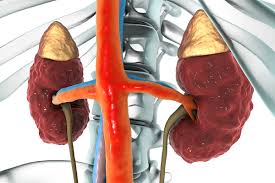Kidney health is essential to overall well-being, yet many people are unaware of the importance of proper kidney function until issues arise. As a nephrologist, I’ve had the privilege of witnessing the resilience of the human body and its ability to adapt to a variety of health challenges, but I’ve also seen the devastating impact that kidney disease can have on a person’s life. In this blog, I’ll discuss the vital role of kidneys in our health, the common causes of kidney disease, and preventive measures you can take to maintain healthy kidneys. The Role of Kidneys in Your Body Kidneys are remarkable organs that play a crucial role in maintaining balance within the body. Located on either side of the spine, the kidneys are responsible for filtering waste and excess fluids from the bloodstream to form urine. They also regulate electrolyte levels, produce hormones that regulate blood pressure, and help in the production of red blood cells. In short, the kidneys help in maintaining a healthy fluid balance, keeping blood pressure stable, and supporting overall metabolic functions. Without healthy kidneys, toxins and waste products would build up in the body, leading to a variety of health issues, including chronic kidney disease (CKD), high blood pressure, and cardiovascular diseases. It’s therefore essential to understand how to protect these vital organs. Understanding Chronic Kidney Disease (CKD) Chronic kidney disease is a progressive condition that damages the kidneys over time. Often, people don’t experience noticeable symptoms until the disease has reached an advanced stage. This is why CKD is sometimes referred to as a “silent” condition. The most common causes of CKD include diabetes, high blood pressure, and heart disease. In fact, nearly one in ten adults globally suffers from CKD, and the incidence is only rising. According to the World Health Organization (WHO), CKD is now one of the leading causes of death and disability worldwide. Risk Factors for Kidney Disease The most significant risk factors for kidney disease are conditions that put extra strain on the kidneys, such as: Symptoms of Kidney Disease While kidney disease often has few symptoms in its early stages, there are certain warning signs you should watch out for: If you experience any of these symptoms, it’s crucial to seek medical attention promptly. Early detection can help prevent further kidney damage and improve the outcome of treatment. Preventing Kidney Disease While some factors like genetics cannot be controlled, there are several ways you can lower your risk of kidney disease and protect your kidneys for the long term: The Future of Nephrology: Innovations in Kidney Health Nephrology has come a long way in recent years. Advances in diagnostic tools, treatments, and therapies have made it possible to detect kidney disease earlier and manage it more effectively. For instance, new medications are emerging that can slow the progression of CKD, and dialysis treatments have been improved to make them more efficient and accessible. Furthermore, kidney transplantation remains the most effective treatment for those with end-stage kidney disease, and with the development of living donor programs and organ sharing networks, transplant success rates have significantly increased. Conclusion: The Path to Healthier Kidneys Kidney health is often overlooked until it becomes a problem. However, with proper prevention, regular check-ups, and a healthy lifestyle, we can protect our kidneys and reduce the risk of kidney disease. It’s essential to be proactive about your health, especially if you have risk factors for kidney disease. If you suspect any issues with your kidneys or if you’re at risk, consult a nephrologist early to ensure the best possible care. Remember, healthy kidneys contribute to a healthier life. Take steps today to protect them for a better tomorrow.


